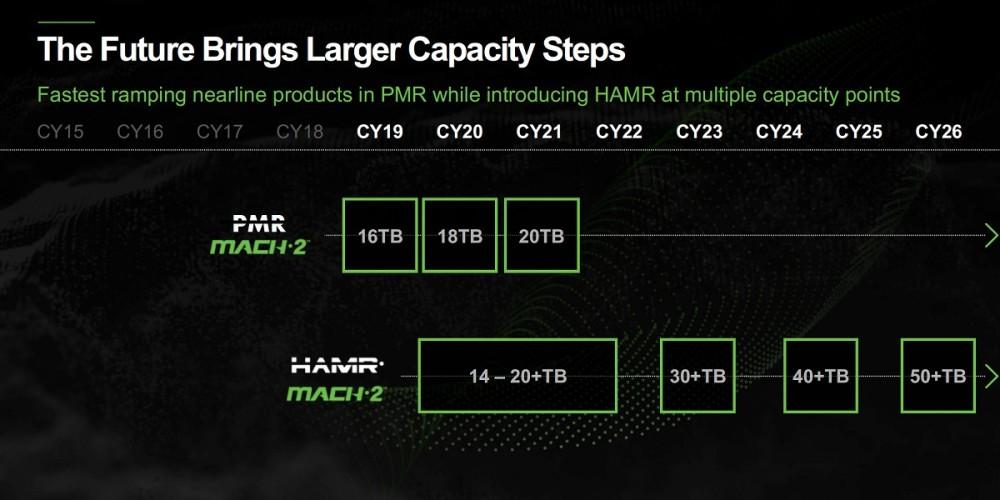Seagate confirmed on a recent earnings call by analysts and investors that it has supplied 22TB hard drives to some interested partners. It uses tile-mounted magnetic recording (SMR) technology, which is the largest capacity model on the market today and will serve very large data centers.

According to SeekingAlpha, Seagate CEO Dave Mosley said Seagate's strategy provides manufacturing flexibility and improves the overall cost efficiency of its common platform, with cmR product capacity now growing from 16TB to 20TB, while SMR products have been expanded to 22TB. These SMR products are primarily aimed at hyperscale users who need to maximize storage density and can use software to manage SMR technology. Because SMR products become particularly slow when they are repeatedly scrubbed, data centers that use these products make targeted optimizations to ensure their performance.
Seagate has not yet announced the specifications of this 22TB hard drive, and it is uncertain whether there are other differences than the previous Exos X20 20TB hard drive, in addition to switching to SMR technology. Previously, Seagate's 20TB hard drives with Thermal Assisted Magnetic Recording (HAMR) technology were sent to designated customers for evaluation and deployment. While Seagate believes that hard drives with HAMR technology with Mach.2 technology (using dual actuators) will eventually make their way into a common platform, no timeline is provided.
Last year, Seagate CFO Gianluca Romano said at the 2021 Global Virtual Technologies Conference that a second-generation HAMR technology is being developed and that the capacity of the new hard drive may be increased to about 30TB. What is more tricky is that it requires a new generation of magnetic heads, main control chips and other supporting parts to complete, which may slow down the research and development speed of large-capacity hard disks.